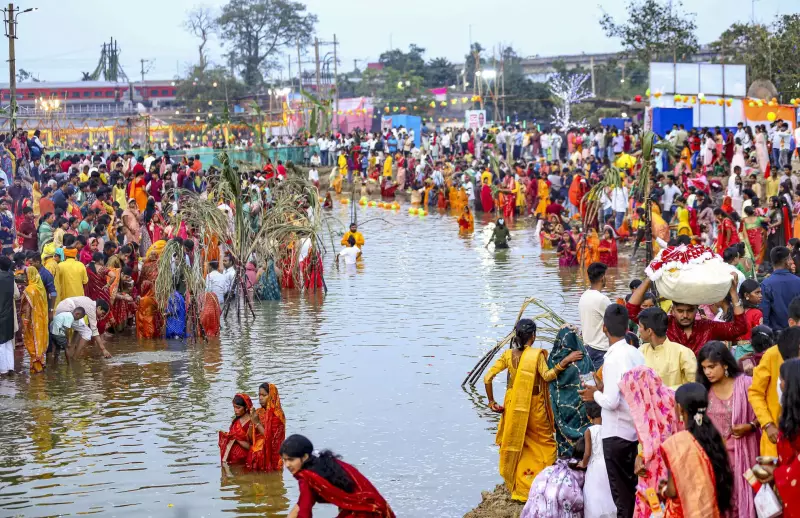
The Jharkhand High Court has taken a stern stance on the recurring tragedy of drowning deaths during Chhath Puja celebrations, initiating a public interest litigation (PIL) to address the alarming pattern of fatalities in water bodies across the state.
A division bench comprising Chief Justice Sanjaya Kumar Mishra and Justice Anand Sen expressed grave concern over the state government's apparent failure to implement adequate safety measures during the important festival. The court's intervention comes as a response to multiple media reports highlighting the disturbing frequency of drowning incidents during the annual rituals.
Court Demands Immediate Accountability
The High Court has issued notices to several key state authorities, including the Chief Secretary, Home Secretary, and Disaster Management Secretary, demanding comprehensive explanations about the preventive measures taken to ensure devotees' safety. The bench specifically questioned why sufficient arrangements weren't made despite the predictable nature of these tragedies.
"Why are there no proper safety measures in place?" the court demanded, emphasizing that the state administration had clear responsibilities to protect citizens during mass religious gatherings. The judicial intervention underscores the seriousness of the recurring safety lapses.
Systemic Failures Under Scanner
Court documents reveal that the PIL was registered based on numerous media reports detailing the heartbreaking incidents where devotees lost their lives while performing Chhath rituals. The bench noted that these tragedies weren't isolated incidents but represented a pattern of systemic failure in ensuring basic water safety.
The judiciary's proactive approach highlights the urgent need for:
- Comprehensive safety protocols at all water bodies
- Adequate lifeguard presence during festival hours
- Proper barricading and warning systems
- Emergency response teams on standby
- Public awareness campaigns about water safety
Broader Implications for Public Safety
This judicial intervention marks a significant moment in holding authorities accountable for public safety during religious festivals. The court's decision to treat media reports as the basis for a PIL demonstrates its commitment to addressing pressing public safety concerns without waiting for formal petitions.
The case has been scheduled for further hearing, with state authorities expected to present detailed affidavits outlining their safety protocols and future preventive measures. The outcome of this PIL could establish important precedents for disaster management during religious gatherings across India.
As Chhath Puja continues to be one of Jharkhand's most significant festivals, this judicial scrutiny brings hope that future celebrations will prioritize both devotion and safety, ensuring that religious observance doesn't come at the cost of human lives.






